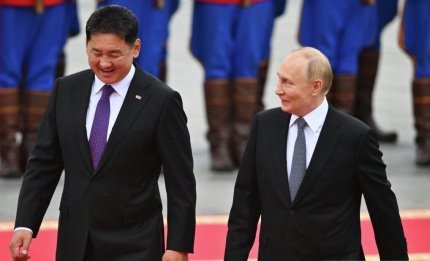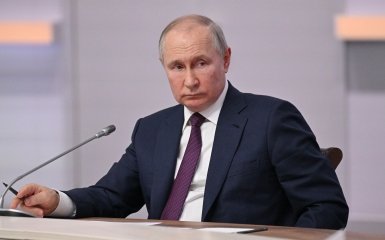Mongolia declared that the country is dependent on the Russian Federation for energy. Because of this, they cannot arrest the Russian dictator Putin on the warrant of the International Criminal Court.
Points of attention
- Mongolia cannot arrest Putin on an ICC warrant because of its energy dependence on the Russian Federation.
- The representative of the government emphasized that the import of energy resources ensures the existence of the country and the people.
- The International Criminal Court can release Mongolia from the obligation to arrest Putin in case of violation of agreements with the Russian Federation.
- Violation of international obligations may lead to violation of the balance of power and authority of the International Criminal Court.
The Mongolian authorities do not arrest Putin because of energy dependence on the Russian Federation
The representative of the government of Mongolia noted that the country depends on the supply of energy resources from the Russian Federation, and because of this, it cannot fulfill the warrant of the International Criminal Court for the arrest of Putin.
Mongolia imports 95% of its petroleum products and more than 20% of its electricity from our closest neighbors, which have previously suffered from technical outages. These supplies are critical to our existence and the existence of our people, the representative said.

In addition, the government representative stated that Mongolia has always followed a policy of neutrality in all its diplomatic relations.
Can Mongolia be released from the obligation to arrest Putin
According to the representative of the International Criminal Court (ICC), Fadi el-Abdallah, Mongolia, as a state party to the Rome Statute, must cooperate with the ICC, but may be exempted from the obligation to arrest the illegitimate president of the Russian Federation, Vladimir Putin.
He explained that states that have signed the Rome Statute, including Mongolia, must cooperate with the court in accordance with Chapter IX of this agreement, which regulates the activities of the ICC.
However, the agreement also stipulates that in some cases states may not comply with the seizure obligations. This is possible if the execution of the warrant conflicts with their contractual obligations to another state or violates the diplomatic immunity of a person or property of a third state.
In case of refusal to cooperate, judges of the ICC can make a corresponding conclusion and inform the Assembly of participating states about it. After that, the Assembly can take any measures it deems necessary, El-Abdallah said.
Gunduz Mamedov, the Deputy Prosecutor General of Ukraine for 2019-2022, noted that if Mongolia and the Russian Federation have previous agreements that will be violated in the event that Mongolia fulfills its obligations to the International Criminal Court and arrests Putin, then the Court must first obtain cooperation consent from Mongolia.
Currently, it is not known whether there are such agreements between the Russian Federation and Mongolia, as well as whether the ISS sent such a request.
If countries ignore their international obligations, they disturb the balance of power. The refusal of a member of the ICC to extradite the suspect to the Court will primarily affect the authority of the Court itself and international criminal justice in general. And this is really very beneficial for those suspected of committing international crimes, - noted Gunduz Mammadov.




